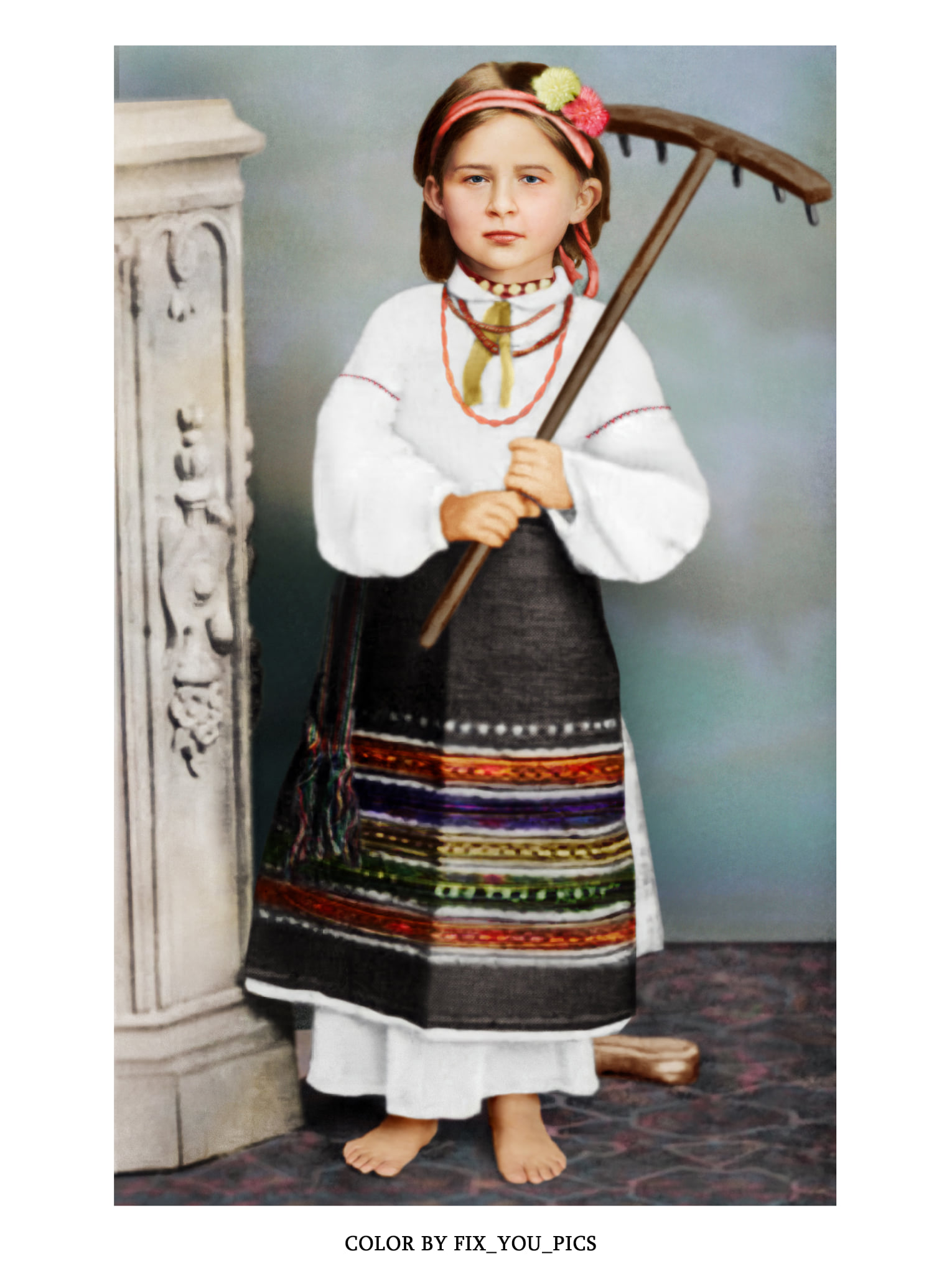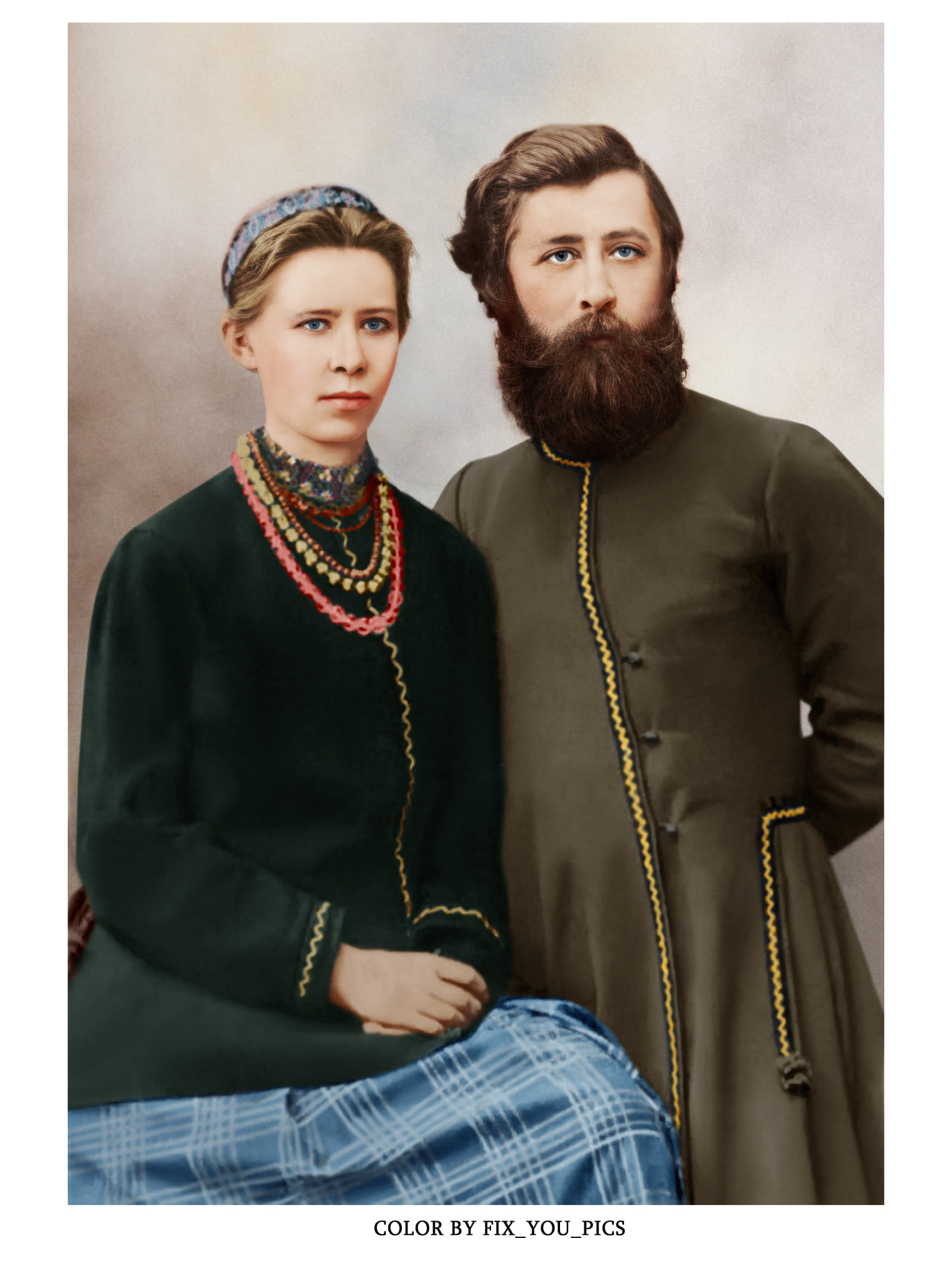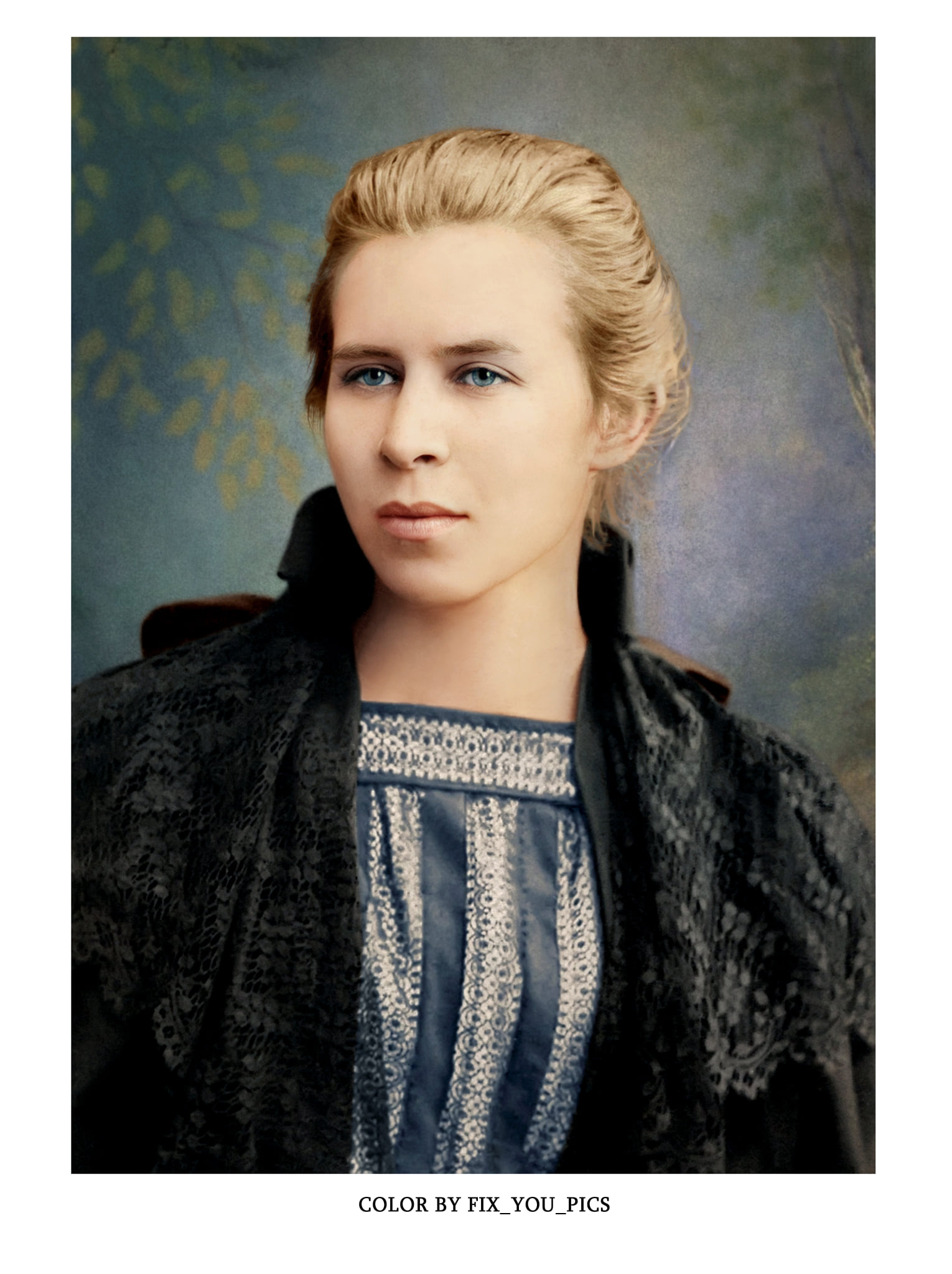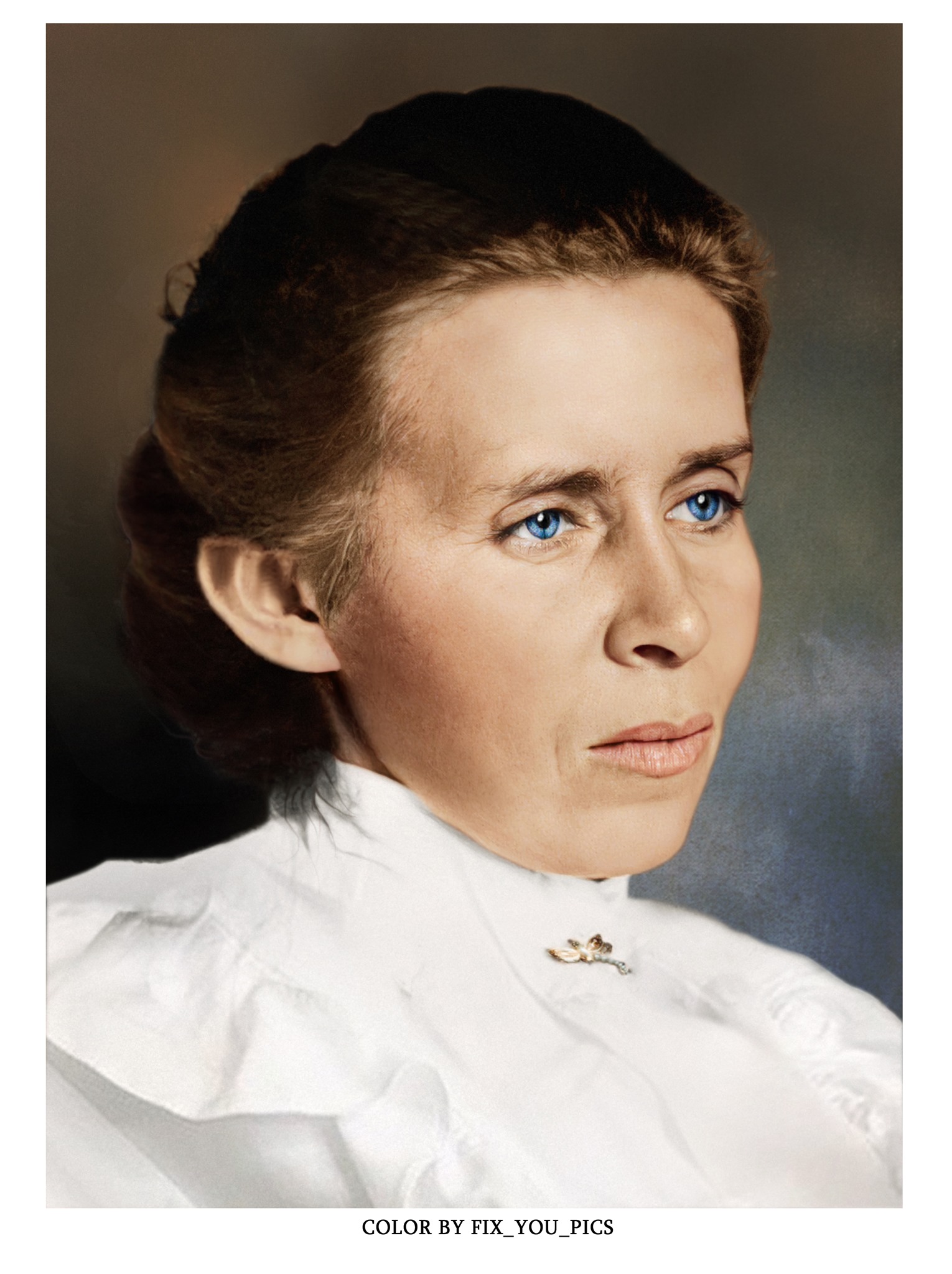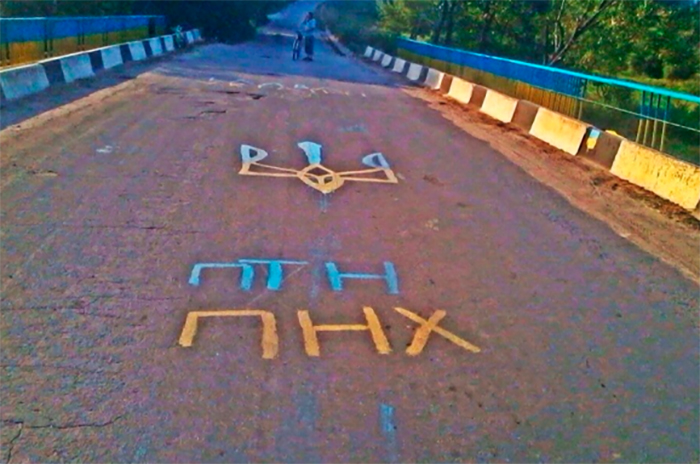Throughout history, Lesia Ukrainka has often been portrayed as a sorrowful, brooding figure, chained to her disease and fighting to stay alive.
But, what was she really like? Fortunately, her prolific correspondence has been preserved, and with it, her innermost thoughts and sentiments, as well as the history of Ukrainian literature and Ukraine’s cultural elite at the turn of the 19th-20th centuries.
Thanks to these archives, we can study Lesia Ukrainka and her literary masterpieces in a new way.
Born Larysa Petrivna Kosach-Kvitka in Novohrad-Volynsky, Zhytomyr Oblast in 1871, Lesia suffered immensely from her disease, travelling from spa resorts to sanatoriums in search of relief from the chronic pain caused by bone tuberculosis. Despite this debilitating disease, she continued writing and creating until her early death in Surami, Georgia on August 1, 1913.
Numerous articles, books and analyses have been written about Lesia Ukrainka. Many more will be published as we approach the 150th anniversary of her birth. She has been studied from many aspects - in some Ukrainian school manuals, Lesia Ukrainka is often portrayed as the daughter of Prometheus or, as poet Ivan Franko so aptly stated, “the only real Man in Ukrainian literature”. In Soviet times she was a socialist, a revolutionary. Today, she is in turn considered a modernist, a fragile neo-romantic, a fervent feminist, an unbreakable fighter for Ukraine’s freedom, and even a brooding mystic…
So, let’s look at Lesia Ukrainka from yet another aspect – as a model for the youth of this world, as a beacon of erudition and as a fervent advocate of European integration.
How does Lesia Ukrainka fit the mould of a teen idol?
Living with her stay-at-home Dad
Believe it or not, when Lesia was just an infant, her father became a stay-at-home Dad. When Lesia, the second child, was born, her mother Olena Pchilka fell ill with anemia, and could not nurse her baby. The family doctor ordered her to travel to Europe for treatment for six months. Petro Kosach stayed home with two small children, Lesia and her older brother Mykhailo. He took a leave of absence, prepared Lesia’s medication and patiently fed her with cow’s milk diluted with water.
150 years ago, the Kosach family had already adopted family roles that are quite popular among young couples in Europe and North America.
Home learning in the Kosach family
All the Kosach children were educated at home. First, Ukrainian was always spoken at home, and Lesia’s parents did not want their children to be educated in Russian. Moreover, their mother, Olena Pchilka was a renowned writer and translator who translated the most popular children’s books into Ukrainian. Lesia Ukrainka’s youngest sister, Izydora described their schooling in her memoirs:
“Our mother didn’t believe in rote learning, coercing or forcing children to study. She was demanding, but never punished us or made us feel guilty, even when we played pranks on others or on each other.”
Lesia’s brothers and sisters continued their studies in high schools. Due to her illness, Lesia continued studying at home. She had private tutors for Greek and Latin; her mother helped her with French and German, and she took piano lessons from Olha O’Connor, the wife of composer Mykola Lysenko. Extremely gifted and ambitious, Lesia Ukrainka was fluent in seven foreign languages as well as Latin and ancient Greek, played the piano skillfully, and even took art and painting lessons at the Kyiv Art School founded by Ukrainian artist and pedagogue Mykola Murashko.
Lesia was fascinated by the Orient
How many young people are captivated by yoga and meditation, plan retreats to remote ashrams in India and long to visit the mysterious East? Lesia Ukrainka was fascinated by oriental cultures, studied them thoroughly, visited Egypt, Caucasia and many other lands, and was drawn to the ancient history of these regions.
In addition, she encouraged self-study outside the official school system, writing in a letter to her uncle Mykhailo Drahomanov:
“What really makes me happy is that our people are beginning to think more about their education, rather than being satisfied with state-run institutions…”
Drahomanov became Lesia’s mentor, advised her on how to write, and sent her classical works by French and German authors. Encouraged by her uncle and mother, Lesia was only a teen when she wrote what we might call an encyclopedia - The Ancient History of Oriental Peoples (Стародавньою історією східних народів), which included translations from the Rig Veda (Vedic Sanskrit hymns), the Bhagavad Gita (primary holy scripture for Hinduism), the Code of Manu (ancient Hindu law), the Avesta (primary collection of religious texts of Zoroastrianism), the legends of Zarathustra (ancient Persian), Egyptian, Assyrian old Hebrew and Babylonian texts, and many other oriental works.
This monumental volume was first published in 1918 and was republished by the Volyn Regional Publishing House in 2008. Both editions are out of print and have become collector’s items.
Pioneer, feminist and rebel
Lesia Ukrainka definitely had a rebellious streak. Her first act was to adopt the pen- name “Ukrainka” (meaning “Ukrainian woman”) – a bold step in a country where the words “Ukraine” and “Ukrainian” were forbidden and discouraged.
She was not afraid to question rules and social norms, often going against her parent’s wishes.
Lesia Ukrainka’s first true love was a Marxist revolutionary from Belarus, Serhiy Merzhynsky. They met in Yalta in 1897, where both of them were undergoing treatment for tuberculosis. He was 27 years old, she was 26. Despite her parents’ disapproval, Lesia travelled to Minsk and sat at Serhiy’s bedside, nursing him and reading him poems and literature. After his death, Lesia sat down and in one night wrote a poem entitled “Одержима” (Possessed).
In 1901, she became close to Klyment Kvitka, a lawyer and later a judge. He was nine years younger than Lesia and as poor as a church mouse. He was different from her previous suitors and male friends – he was neither a revolutionary nor a socialist, but a brilliant musicologist and ethnographer, spoke 13 languages and devoted most of his time to studying professional folk bards and musicians, in particular the history of kobzars and lirnyks in Ukraine.
Lesia fell in love and did not pay much attention to formalities or social norms, as she wrote in a letter to her best friend, writer and feminist activist Olha Kobylianska:
“I don’t know what our relationship will be like, but I know that all will be well as long as we continue being different from one another, and helping each other as much as possible…Harmony cannot be found in sameness!”
For five years, Lesia and Klyment lived together; they finally married in 1907 when Klyment realized that he could not get a job due to their common law relationship. Lesia’s mother, Olena Pchilka, was against this marriage, so the wedding took place without witnesses and guests, and Lesia informed her parents about the event by letter. The couple even refused financial help from the Kosach family. In the last years of her life, to help pay for their journeys, Lesia took on various freelance jobs – translating and tutoring.
Lesia Ukrainka was a proponent of feminism and a true pioneer in many fields. She was the first woman in world literature to create her own original version of the legendary character Don Juan in the 1912 drama The Stone Host.
In her lecture Killing Don Juan. Lesia Ukrainka and Women Writers of the 20th century, Ukrainian writer Oksana Zabuzhko makes an important point by stating that Lesia Ukrainka presents “not just another version of the Don Juan legend, but a reverse version” by giving the central role to a strong and proud female character, Donna Anna, who achieves what she desires because she is a masterful manipulator and knows how to control men, in this case the Commander and Don Juan.
“She’s brilliant. A shark in the world of men, a woman of the 21st century who today could manage large corporations, media holdings, governments,” extrapolates Zabuzhko
Lesia’s coffin was carried by six women

Lesia Ukrainka passed away in Surami, Georgia in 1913. The funeral in Kyiv took place under the strict supervision of the police, as authorities feared that it would turn into a Ukrainian nationalist rally. Farewell speeches were banned and the inscriptions on the funeral wreaths were carefully monitored. Nevertheless, hundreds of Kyivans gathered to pay their last respects to Ukraine’s leading poet.
Six women - Lesia’s friends and famous Ukrainian public figures - carried the coffin on their shoulders. The crowd stood at her grave site all day in protest to the official ban. It was Lesia Ukrainka’s final epic act of nose-thumbing at Tsarist Russia and Russian authoritarianism.
Femme Moderne – both erudite and European
Lesia and European literature
Lesia Ukrainka was greatly influenced by Western European literature, and often wrote on ancient Greek and Roman themes. Not only was she fluent in several Slavic languages, but she also knew ancient Greek and Latin, as well as English, German, French and Italian. She read world classics in the original, and completed masterful translations of works by Homer, William Shakespeare, Lord Byron, Viktor Hugo, Ivan Turgenev and many others.
In addition, she studied classical Greek and Roman literature, wrote several essays on the philosophical views of Plato, St. Augustine, explored the Italian Renaissance, and plunged into the works of contemporary European writers and philosophers.
No matter how renowned the European master, Lesia was an undaunted scholar, translating and writing about such monumental figures as German philosopher and writer Friederich Nietzsche, French novelist and journalist George Sand, French woman of letters Madame de Staël, French writer Alexandre Dumas-fils, English novelist and journalist Rudyard Kipling, and many others.
An equally interesting review of European literature can be found in Lesia Ukrainka’s Utopia in Fiction
, where she talks extensively about Plato, St. Augustine, Thomas More, Erasmus, Italian friar and philosopher Tomaso Campanella, French socialist Gracchus Babeuf, Lord Byron, Heinrich Heine, French and British utopian socialists, etc.
Moreover, she often used stories taken from Western European literature, such as the ancient Greeks and Romans, Tristan and Isolde, Don Juan, King Robert Bruce of Scotland, etc. There is no doubt that she created and wrote in the Western European literary context, bringing Ukrainian culture closer to the cultures of Western European nations.
Lesia Ukrainka wanted Ukrainian literature to achieve success in Europe, to be integrated into the European literary community, but retain its linguistic richness, style, and national particularities. Congratulating writer Mykhailo Starytsky on the 30th anniversary of his literary activity, she wrote:
“I’m convinced that our word will grow and strengthen… and our literature will take an honourable place next to the literature of other nations…”
Indeed, in her poems, Lesia poses many existential questions related to Ukraine and its relation to Europe and the world beyond. In her Fa sonata, she voices the following questions, addressing both her inner self and the Ukrainian nation:
How to build a new world from the old?
How to teach the indifferent to feel?
How to awaken the dormant brain?
Lesia’s frank hostility to Russian imperialism

Lesia Ukrainka’s works reflect European values and make constant references to European culture and traditions. Lesia was well-read and erudite, and had a remarkable knowledge of Western European culture. She was born in Ukraine when it was part of the Russian Empire, but she looked upon Russian culture and Russian life without great enthusiasm.
This is clearly reflected in her historical drama Boyarynia (The Noblewoman), which was banned in Tsarist Russia. As a matter of fact, many of her masterpieces were published in Lviv, which was then part of the Austro-Hungarian Empire and somewhat more open and receptive than authoritarian Russia. Later on, Lesia’s works continued to be banned in the Soviet Union, or else they were re-worked and re-interpreted to suit the Kremlin.
Boyarynia is a psychological tragedy centering on a Ukrainian family in the 17th century. Lesia’s heroine, Oksana, asserts that only the struggle for the freedom and independence of the Motherland, only dedication to its people can bring true happiness. Oksana turns and speaks bitterly to her husband Stepan, an indecisive and subjugated boyar serving in Moscow, condemning the timidity and passivity of Ukrainians who did not stand up to fight for their country. She points to the fatal mistakes of the past - the divisions in Ukrainian society and maintains that only armed struggle can free the Ukrainian people from their Muscovite prison.
…What do you say?
Is there peace in our land? Our spirit is broken,
Ukraine has fallen prostrate at Moscow’s feet
Do you think this is peace? – all this destruction?
In such a way will I also rest in peace… but in my coffin.
Boyarynia is more than relevant in today’s world. It tells us not to be complacent; it shows us how to fight and win. This is the true meaning of life, says Lesia.
There is no doubt that Lesia was very knowledgeable about Russian culture. She was familiar with all the works of renowned Russian writers - Alexander Pushkin, Ivan Turgenev, Fyodor Dostoevsky, Nikolai Chernyshevsky, etc. However, she took a strong stance with regard to Ukraine, clearly explaining her position on the national question:
“It’s high time to speak the truth… that these two 'brotherly nations' are just neighbours, although connected by a common yoke. However, in essence, they do not have the same interests and therefore, even if they stand side by side, it is better for them to act independently and not interfere in their neighbour’s 'domestic policy'.”
She was active in the Ukrainian struggle against Tsarism and joined Ukrainian Marxist organizations, translating the Communist Manifesto into Ukrainian in 1902. In 1907 she was arrested and, following her release, was kept under observation by the Tsarist police.
Pleiada – literary evenings à la française
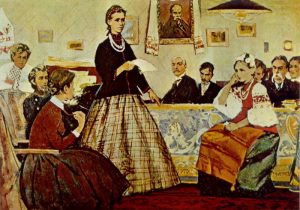
Pleiada was a literary group established in Kyiv in 1888 by Lesia Ukrainka and her brother, Mykhailo Kosach. It was modeled on the French group of 16th-century French Renaissance poets - La Pléiade
. Its members included many Ukrainian intellectuals, writers, composers, public activists, public figures, such as Volodymyr Samiylenko, Mykola Lysenko, Mykhailo Starytsky, etc.
The group also held literary evenings and contests, and translated the works of non-Ukrainian authors, such as Heinrich Heine, Dante, Pierre-Jean de Béranger and Molière. The members prepared three collections for publication - Vesna (Kyiv), Desna (Chernihiv) and Spilka (Odesa), but all three were banned by the Russian authorities. The Pleiada group continued until 1893.
Travelling through Europe
In February 1891, Lesia travelled to Vienna where she hoped to undergo an operation on her affected leg. During her 40 days in Vienna, she marveled at the freedom enjoyed by the Austrians as compared to the despotism of the Russian empire:
“I look at the Europe and the Europeans before me, and I want to say something true even though I’m on the sidelines… My first impression was that I had entered another world – a better world, a freer world. It will be much harder for me now when I return to my country. I’m ashamed that we are so enslaved, that we carry such heavy shackles and sleep so peacefully under them. I have awakened, and I am sad and I grieve; I am in pain…”
Although Lesia generally chastises some Ukrainians who continue looking to Russia for inspiration, she sees hope in young people who were even then turning more toward Europe and European integration:
“It’s a pity that the majority of our Ukrainian community read this miserable Russian press, because such people fail to see the world properly… Fortunately, “Westernization” has begun among our young people, many of whom have taken up French, German, English and Italian in order to read other literature.”
And further:
“Recently, Europeanism has become popular among Kyiv’s students and young people; they’ve begun studying European languages and taking an interest in European literature.”
The Forest Song – a Ukrainian Märchendrama

Lesia Ukrainka appreciated German literature and especially Die Versunkene Glocke (The Sunken Bell), a five-act verse play by German dramatist and novelist Gerhart Hauptmann, where fiction intertwines with reality. This German tale probably influenced Lesia Ukrainka’s The Forest Song (Лісова пісня), which she referred to as a Märchendrama, loosely translated as ‘fairy-tale drama’ or ‘dramatic fairy-tale’.
The plot of these two plays is different, although the spirit of neo-romanticism, intertwined with realism, prevails in both works. However, Lesya Ukrainka believed that the term Märchendrama “cannot be translated into our language”, and a direct translation would sound awkward. Therefore, she called The Forest Song a “драма-феєрія” (based on the French term - féerie).
MAVKA. THE FOREST SONG, scheduled for release in 2022. Official Teaser Trailer
The Forest Song is not just a simple fairy tale, but through its colourful forest creatures, it reveals the inseparable bond between man and nature, the universality of human values and the struggle between good and evil.
An enduring symbol
Throughout her life, Lesia Ukrainka professed the values of Western Europe, as well as patriotism, education, peace, tolerance and gender equality.
It is these same values that are embodied in the Revolution of Dignity and Ukraine’s choice of European integration. It is no wonder that Lesia Ukrainka, together with Taras Shevchenk and Ivan Franko were chosen as symbols during the Revolution of Dignity, standing side by side with all Ukrainians as they fought for these universal values - personal freedom, human dignity, solidarity, democracy and rule of law.
Lesia Ukrainka’s literary heritage and messages remains more than relevant in our world today and, throughout the years, have had a significant impact on Ukrainian and international cultural discourse.
A few days ago, Fix_You_Pics began colouring some old photos of Lesia Ukrainka and publishing them on their page. Here they are:






